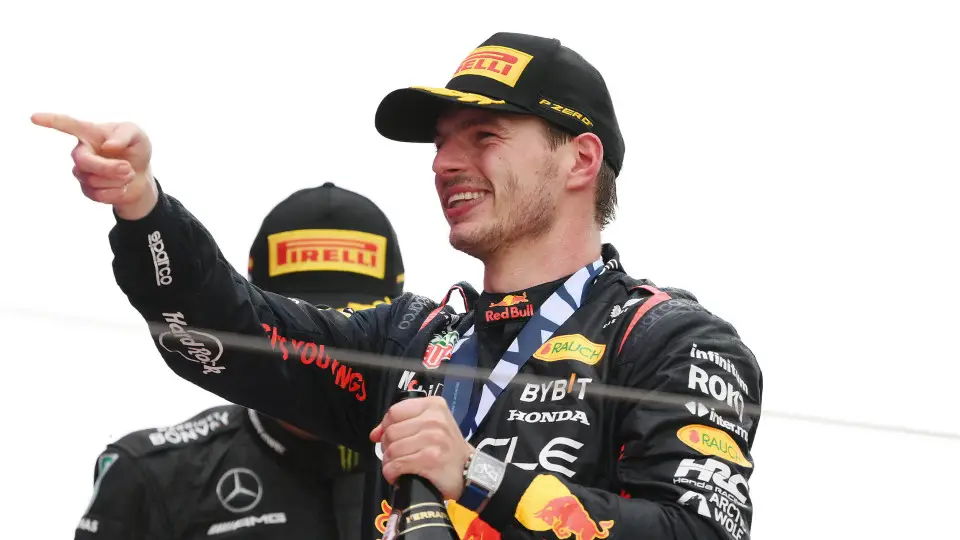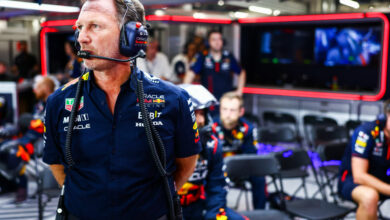Max Verstappen Speaks Out on Carlos Sainz’s “Harsh” Penalty in Las Vegas F1 Clash
In a recent turn of events at the Las Vegas Grand Prix, Max Verstappen openly criticized the 10-place grid penalty imposed on Carlos Sainz, calling it “very harsh.” This comment from the Red Bull driver reflects ongoing debates regarding Formula 1’s penalty system and its impact on drivers and teams.
Key Takeaways:
- Carlos Sainz faced a substantial setback at the Las Vegas Grand Prix when a drain cover damaged his Ferrari, affecting crucial components like the engine, Energy Store, and Control Electronics.
- Ferrari’s request for a penalty waiver, citing extraordinary circumstances for the damage, was rejected. The stewards adhered strictly to the Formula 1 Sporting Regulations, enforcing the standard penalties.
- The decision was grounded in Article 2.1 and Article 28.3 of the Formula 1 Sporting Regulations, leading to Sainz’s mandatory 10-place grid penalty.

During the initial practice session of the Las Vegas Grand Prix, Carlos Sainz’s Ferrari suffered significant damage after colliding with a drain cover. This unfortunate event not only affected the car’s engine but also its Energy Store and Control Electronics, components critical to the vehicle’s performance.
Ferrari, in an attempt to mitigate the impact of this incident, sought relief from the consequential penalties. Their argument was based on the premise that the damage resulted from extraordinary external factors, beyond the control of the team or driver. However, the stewards, committed to maintaining the integrity of the Formula 1 Sporting Regulations, denied this exemption.
Max Verstappen’s reaction to this decision was made public during the post-qualifying press conference. He expressed his concern about the severity of the penalty and suggested a revision of the rules for incidents like this. Verstappen pointed out the need for considering such unique scenarios in the regulations, advocating for changes that would allow for more flexibility in penalty decisions.
He stated, “The rules have to change for that. It’s the same if you get taken out and have a big accident. You can lose parts of engine, energy store, all these kind of things. So first of all that needs to change and these things can be taken into consideration that you can take a free penalty or not, it will not be counted. Besides, I think teams should not be allowed to have a say in these kind of things because for sure they are going to vote against that. I do think it’s very harsh on Carlos but in this political environment we are in of course every team thinks about themselves and they are going to say ‘no, he has to take the penalty.'”
Verstappen’s comments highlight a broader issue within Formula 1, where the involvement of teams in decision-making processes can sometimes lead to biased outcomes. His advocacy for a change in the rules reflects a growing sentiment among drivers and teams for more equitable and fair regulations, especially in situations involving accidental or unforeseen damages. This incident and the ensuing discussions are likely to spark further debate on the governance and penalty systems within the world of Formula 1.



